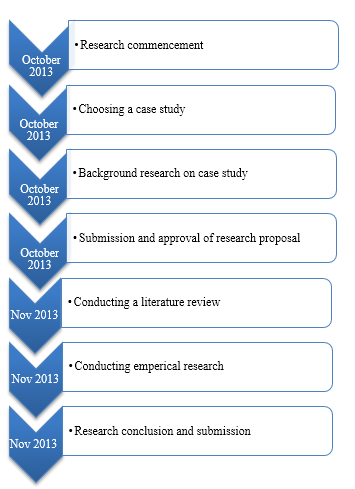Introduction
Daoist ideas expressed by Tao Yunaming have developed overtime and still have strong influence over the communist system in China. Specifically, this system of religious thought originated from Asia continent.
Several authors have developed a comprehensive table of events on the development of Daoism philosophy. In analyzing Daoism in China, Tao brings about the question of legitimacy of the different ideologies in the then free Chinese society.
Tao asserts that issue legitimacy ensures stability of the society. Therefore, the religious power can only be fully exercised in accordance with the deities and beliefs endorsed in the light of principles and ideals acceptable to common human reason.
This deity framework tolerates as well as respects others of different opinions. Hence, this provides a particular explanation for the diversity of traditions in the sundry China society and form the basis of the research.
The fundamental ideas from the public Chinese Daoism religious culture can be interpreted into social conception of the ideal sages that differentiate the dualist existence of hell and heaven.
It was freestanding since its content was set out independently of the comprehensive doctrines that members of Daoism culture affirmed. This led to overlapping consensus in which each reasonable daoist affirmed the religious law from within own perspective.
Thus, this reflective treatise attempts to explicitly review the development of Daoism philosophy in the present culture of Chinese and the concepts of sages, deities, hell and heaven, and Confucian discourse.
Hypothesis
Null Hypothesis: Daoism culture has greatly impacted on the current sages, deities and Confucian discourse associated with the modern Chinese culture.
Alternative Hypothesis: Daoism culture has not impacted on the current sages, deities and Confucian discourse associated with the modern Chinese culture.
Methodology
This research will utilize empirical research since a lot of literature on Daoism has been captured by many authors. The works of Jing, Kohn, Lai, and Zhuangzi on Daoism will provide the relevant secondary material for the empirical study.
Series of views and approaches adopted by these authors will be reviewed with the intention of providing a complete understanding of Daoism and its influence on sages, deities, hell and heaven, and Confucian discourse associated with the modern Chinese culture.
Since the orientations in the Daoist tradition balances the contrary extreme habits to maintain beneficial friendship despite assuming a compromising ground for religious actions, it is necessary to establish the link to modern Chinese culture.
There are specific deities and sages that define what is ideal and the contrary. These beliefs create a standard and uniform ground from which all members are in a position to accomplish morality in more or less the same approach.
Topics to be covered
- The historical perspective of Daoism.
- The boundary that exists between the Buddhist religion and Daoism thought in the unstable, tenuous, and difficult to identify Chinese culture.
- The philosophical orientation of Daoism on semi divine and divine links within the traditional Chinese religion.
- The development and transformation of Daoism that venerated different deities that climaxed with unique interactive hierarchies.
- The ‘common religion’, literary aspects and mystery as components of Daoism.

Annotated Bibliography
Jing, Daode, Tao Te Ching. Web.
In his comprehensive reflection, Jing (2013) adopts deontological approach which base wrongness and rightness on intrinsic characteristics, with consequences being a negligible influence on the same. Jing notes that the legitimacy of Daoism beliefs has led to acceptability of the deities and religious roles that are internalized in the norms of the Chinese society. Jing concludes that the moral standards of the Daoism tradition answer the questions on freedom and equality in the Chinese society.
Kohn, Livia. Daoist Dietetics: Food for Immortality. London: Three Pine Press, 2010.
Kohn (2010) strongly believes that highest morals rest on deity and sage systems which allowed mankind to undertake actions in the backdrop of peak morality or moral worth often based on origin priority of the Chinese culture. For instance, when the underlying Daoism religious belief command plan originated from the opinionated inclination of a senior individual in the society, the results would basically be aligned towards self contempt. Kohn further reviewed the categorical and hypothetical imperatives of the Daoism to understand its metamorphosis within the unique Chinese culture of the time.
Lai, Karyn. An Introduction to Chinese Philosophy. London: Cambridge University Press, 2008.
Lai is philosophical and very sophisticated in clarifying what the society might consider the ideal religious culture of the Daoists. Among his listed examples include experiencing pleasure, being honored, being healthy, and having beneficial friends. However, he is much interested on foundation of each of these good actions. Therefore, excellence in this case is the average between duo extremes; deficiency and excess. Lai presents a philosophical definition of virtue since there is not universal formula that can remain the same for interpretation of Daoist philosophers.
Zhuangzi, Tse. Chinese Cultural Studies: Zhuangzi Chuang-tse. 2013. Web.
Zhuangzi builds what is commonly referred to as ‘ethics of common sense’ and is actively functioning on self realization and naturalism. Zhuangzi looks into the good will, proper motive, first and second categorical imperatives, and immorality as a component of irrationality in his philosophical reflection on Chinese philosophy. Zhuangzi covers the aspect of good, happiness as part of moral significance, good character, practical wisdom, ontology and axiology, pleasure, and contemplative faculty as part of his ethical Chinese philosophy on Daoism.
Bibliography
Carr, Michael. 1990. “Whence the Pronunciation of Taoism?” Dictionaries 12:55–74.
Cohen, Gerald. 1989. “Gung Ho Revisited, Part 1″. Comments on Etymology 29.3:1–42.
Gallagher (trans.), Louis J.; Trigault, Nicolas (1953), China in the Sixteenth Century: The Journals of Matteo Ricci, Random House, New York (Only snippet view on Google Books).
Girardot, N. J., James Miller and Liu Xiaogan, eds. 2001. Daoism and Ecology: Ways within a Cosmic Landscape. Harvard University Press.
Hu, Jiajian. 1999. “Chinese Romanization in Library of Congress Cataloging”. Illinois Periodicals.
Kratochvil, Paul. The Chinese Language Today. Hutchinson, 1968.